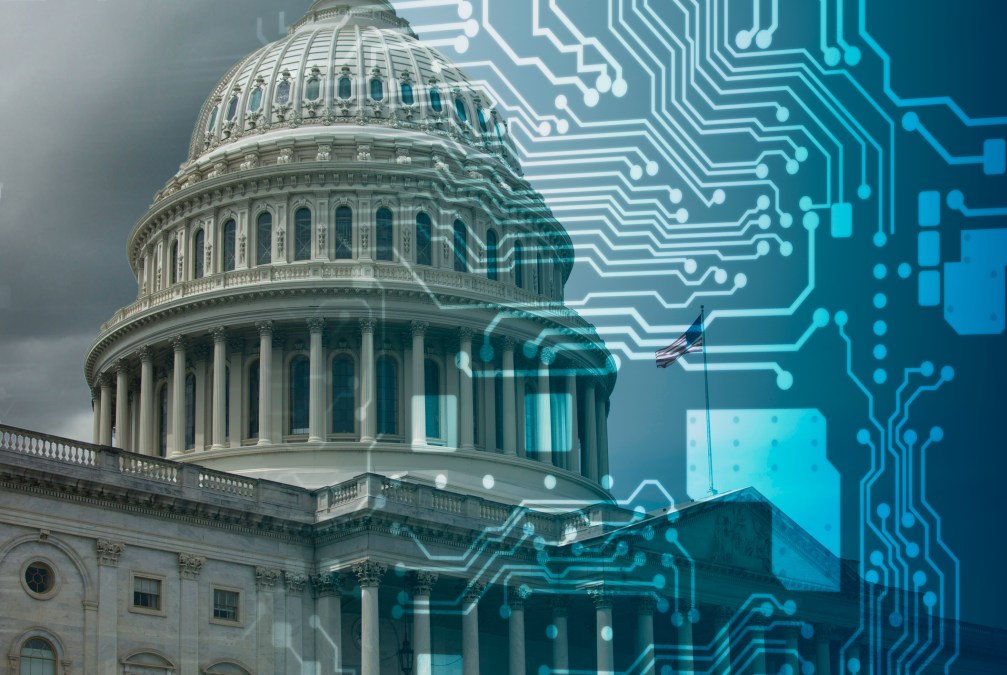Tech groups urge congressional leaders to pass bill on agency software buying

Five of the country’s leading software and tech advocacy organizations are urging Senate and House leadership to pass bipartisan, bicameral legislation aimed at improving federal agency oversight and management of software purchases before this congressional term comes to a close.
In a letter sent Wednesday and shared exclusively with FedScoop, the tech groups urged Senate Majority Leader Chuck Schumer, D-N.Y., Minority Leader Mitch McConnell, R-Ky., House Speaker Mike Johnson, R-La., and Minority Leader Hakeem Jeffries, D-N.Y., to take action on the Strengthening Agency Management and Oversight of Software Assets Act by the end of this session, referring to the bill to bolster transparency and communication in IT spending across federal agencies as “must-pass legislation.”
The SAMOSA Act “will reduce unnecessary technology-related costs across federal agencies by requiring independent and comprehensive assessments of current software management practices,” per the letter, which was signed by the Coalition for Fair Software Licensing, the Alliance for Digital Innovation, the Computer & Communications Industry Association, NetChoice and the Software Information & Industry Association.
“Practices such as inflexible licensing agreements and limited integration capabilities prevent federal agencies from accessing or utilizing the most cost-effective options available,” the letter continues. “This dynamic undermines digital transformation. It also puts taxpayer dollars at risk of waste, fraud, and abuse.”
Ryan Triplette, executive director of the Coalition for Fair Software Licensing, said in an interview with FedScoop that the increasingly partisan nature of Congress has made it much more difficult to move legislation “beyond the must-pass bills.” The SAMOSA Act, she said, should be a no-brainer for passage given its focus on “good governance” and “best practices” for software licensing purchases.
Passing the legislation is important “given the amount of dollars that are at stake, but also … [the] security implications and just pure efficiencies and resiliency of operations,” Triplette said. “We depend on our cloud operations, we depend on our daily technology to function every day, and this is getting at it.”
The legislation has been waiting for its day in the sun for more than a year in both the Senate and House. The Senate version, from Sens. Gary Peters, D-Mich., and Bill Cassidy, R-La., cleared the chamber’s Homeland Security and Governmental Affairs Committee in May 2023. Two months later, the House companion — introduced by Rep. Matt Cartwright, D-Pa., and 20 bipartisan co-sponsors — sailed through the Oversight Committee.
The Government Accountability Office has shown particular interest in the issue of redundancy in software purchases throughout the federal government, releasing a report in September 2023 that called out the Defense Department’s “duplicative” IT buying. In January, the GAO released findings from its investigation into federal civilian agencies’ software licenses, coming to the conclusion that better tracking and inventorying is needed to avoid over-purchasing. The federal government spends more than $100 billion annually on IT and cyber purchases, the watchdog noted, with agencies buying thousands of software licenses every year.
Triplette said the bill’s potential to reduce costs across the federal government has led to “an interesting group of members” pushing for passage. “This has been something that has garnered quite a bit of support,” she said. “And I think for that reason, it still has quite a bit of a possibility, even with a ticking, ticking clock running on the legislative calendar.”
One potential “sticking point,” Triplette noted, is determining whether “anything needs to be done specifically” with the bill for National Security Agency or broader intelligence community implications, though the language has been cleared by the Office of Management and Budget. Beyond that, it’s a waiting game for SAMOSA backers on whether it will be attached to a must-pass bill like the National Defense Authorization Act or move forward as standalone legislation.
“There’s obviously quite a lot that everybody’s trying to get done” before the end of this congressional term, Triplette said. “But I think there’s a recognition [that it needs to pass], especially given the cost savings that are associated with the bill.”



